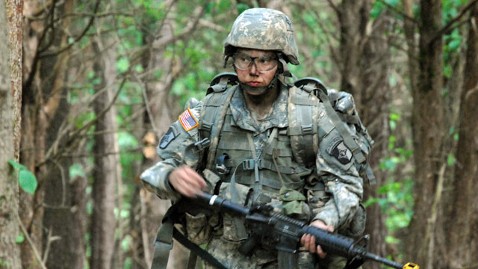A puzzle at the heart of the atom refuses to go away. The most precise measurement yet of the proton's radius confirms that it sometimes seems smaller than the laws of physics demand – an issue that has been hotly debated for two years.
The latest finding deepens the need for exotic physics, or some other explanation, to account for the inconsistency. "If we were in a hole before, the hole is deeper now," says Gerald Miller of the University of Washington in Seattle, who was not involved in the new measurement.
The saga of the proton radius began in 2010, when a group led by Randolf Pohl at the Max Planck Institute of Quantum Optics in Garching, Germany, determined the width of the fuzzy ball of positive charge – and found it was
Previous teams had inferred the proton's radius, which is impossible to measure directly, by studying how electrons and protons interact. One method uses the simplest atom, hydrogen, which consists of one electron and one proton. A quirk of quantum mechanics says that an electron in an atom can only orbit its proton at certain distances, corresponding to different energy levels. The electron can jump between levels if it absorbs or releases energy in the form of a photon of light.
Ball of charge
By measuring the energy of photons emitted by an excited hydrogen atom, physicists can figure out how far apart the energy levels are, and thus the distances of the permitted electron orbits. A theory called quantum electrodynamics then allows them to calculate how far the proton's ball of charge must extend to keep the electrons at those distances.
This method gave a charge radius for the proton that was about 0.877 femtometres, less than a trillionth of a millimetre.
Pohl and colleagues used a novel method. They created an exotic version of hydrogen that replaces the electron with a muon, a particle that has the same charge as the electron but is 200 times heavier. Its extra bulk makes it more sensitive to the proton's size, meaning radius measurements based on muons are orders of magnitude more precise.
The new method didn't just make the measurements more precise. It also changed them: the muonic hydrogen gave a radius of 0.8418 femtometres, 4 per cent less than before.
Scandalous result
That might not sound like much, but in the world of particle physics, where theory and experiment can agree to parts in a billion, it was scandalous. A lively discussion sprang up, with some physicists claiming problems with Pohl's experiments and interpretations, and others suggesting gaps in the standard model of particle physics.
Pohl and colleagues have now repeated their experiment. The measurement of the radius is now even more precise than in 2010 – and it is still 4 per cent smaller than the value from hydrogen-based experiments.
Pohl reckons that there are three likely explanations. His experiment could have errors, although the confirmation makes that less likely. Alternatively, the electron experiments could be off. "This would be the most boring possibility," says Pohl.
The third, and most exciting, possibility is that muons do not interact with protons in the same way as electrons. In other words, the proton's apparent radius changes a little bit depending on which particle it is interacting with.
If true, that might require the existence of unknown particles that alter the way the muon interacts with the proton. Those particles could, in turn, solve some of the problems with the standard model of particle physics. They could, for instance, provide a candidate for dark matter, the mysterious stuff that makes up more than 80 per cent of the mass in the universe.
Monumental idea
Miller, Pohl and Ron Gilman of Rutgers University in Piscataway, New Jersey helped organise a workshop with 50 proton experts in Trento, Italy, last October to hash out the details of the problem – and arrived at a verdict of sorts. "Because the muon experiments seem to be so solid, the most popular answers were that there's some beyond-the-standard-model physics differentiating between muon and electron, which would be very important," Gilman says.
"That would be monumental, truly," Miller says.
But Miller also has a less radical suggestion, which could reconcile all the measurements without invoking new particles. According to quantum electrodynamics, two charged particles can interact with each other by exchanging a photon – it's as if they spontaneously create a basketball and throw it between them, he says.
The equations also allow for a more complicated interaction where the particles create two balls, and juggle them. Until now this type of interaction was considered too rare to be important, but Miller reckons that the muon's greater mass could make it a better juggler. That would strengthen the proton's interaction with it and make the proton look smaller to the muon without requiring any new physics.
All these ideas will be up for review in a few years' time when new experiments, including shooting muons at protons to see how they scatter and building muonic helium atoms to measure their energy levels, are completed.
"It's quite likely that through other experiments, in two to three years we might get an end to this," Miller says. "It shouldn't take forever."
Journal reference: Science, DOI: 10.1126/science.1230016
If you would like to reuse any content from New Scientist, either in print or online, please contact the syndication department first for permission. New Scientist does not own rights to photos, but there are a variety of licensing options available for use of articles and graphics we own the copyright to.
All comments should respect the New Scientist House Rules. If you think a particular comment breaks these rules then please use the "Report" link in that comment to report it to us.
If you are having a technical problem posting a comment, please contact technical support.














